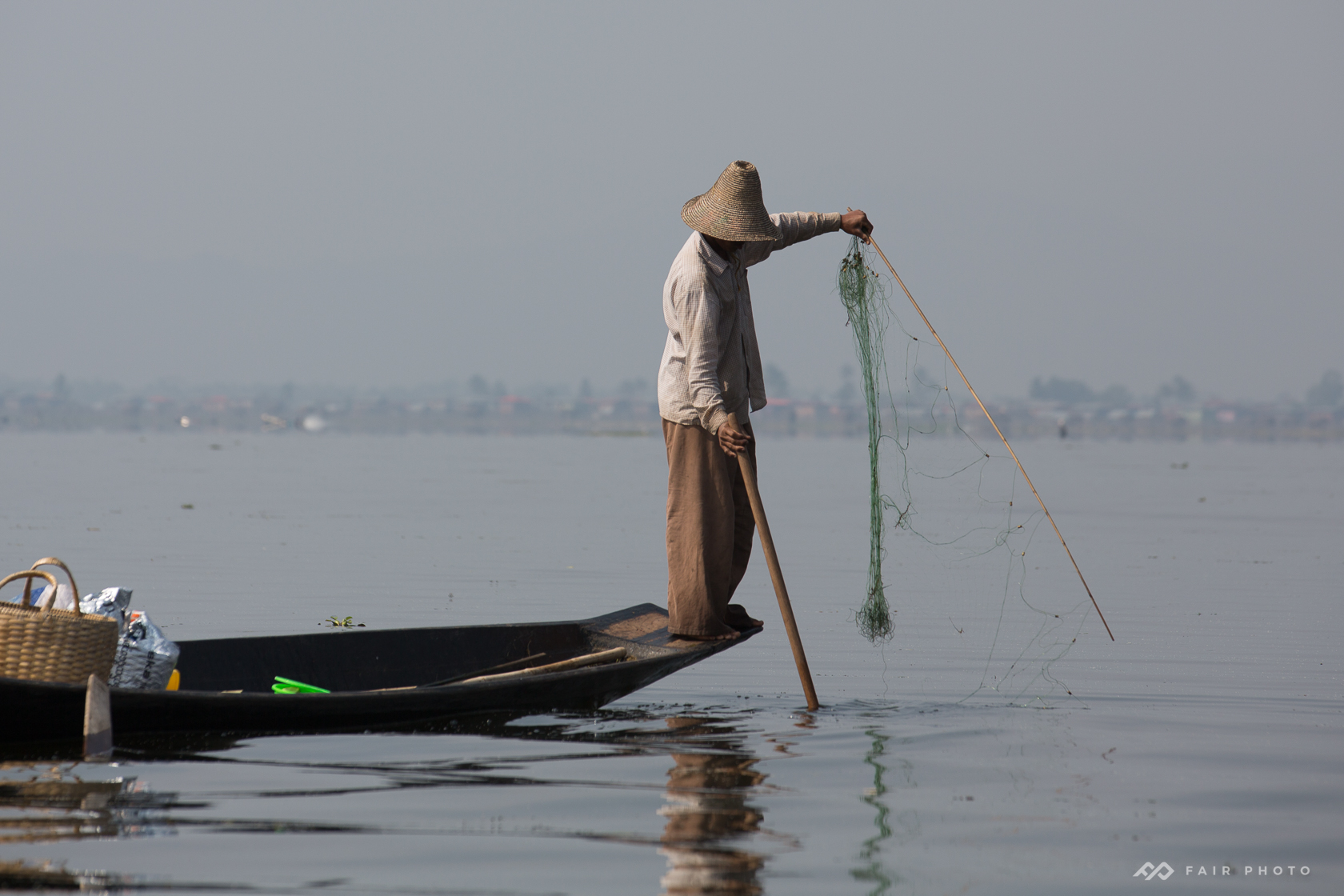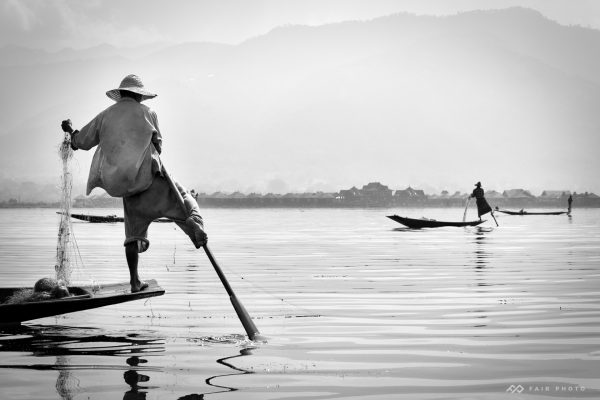Inle Lake is a freshwater lake located in the Nyaungshwe Township of Shan State in Myanmar. It is the second largest lake in Myanmar, after Indawgyi Lake in the north.
I first visited this lake in in 2016, when I joined a guided walking tour from Kalaw to Inle through local hills and villages.
Many of the houses in Inle are built on stilts to keep them dry as the water levels fluctuate.
There are 4 main villages around the lake, all part of the Nyaung Shwe township. The villages are predominantly occupied by Intha people, with a mix of other Shan, Taungyo, Pa-O (Taungthu), Danu, Kayah, Danaw and Bamar ethnicities.
Most transportation on the lake is traditionally by small boats.
Farmers are mostly self-sufficient and depending on the season they use the mud to grow tomatoes, cucumbers, gourds and pulses. These gardens rise and fall with changes in the water level, and so are resistant to flooding
Local fishermen are known for practicing a distinctive style of fishing. They stand at the stern on one leg while wrapping the other leg around the oar. This helps them see through the dense reeds and floating plants.
A local carp, called nga hpein locally, has been a staple of the local diet and has also been historically most abundant. There are more than 35 native species of fish, including 17 species that are found no where else in the world, including the nga hpein. Today this carp is seriously threatened.
Unfortunately, the Inle watershed is suffering from the environmental effects of the overuse of chemical farming, deforestation, lack of effective water management systems and pressures on resources due to rapidly increasing tourism.
Youth in particular are vulnerable to the changing patterns of life in and around the lake, with many seeing few options but to leave. They are also at risk of drug usage and other risk behaviours as Shan state is a major production and trafficking area for illicit drugs.
Tourism is both an economical industry to harness as well as a major threat to the ecological health of the lake and its surroundings. The development of eco-tourism that does not impact the local environment but also genuinely gives back to the community and helps promote conservation and sustainability could provide an answer.
The Kalyana Mitta Foundation, or KMF, is a local NGO working for sustainable development and peace.
Hnalone Hla Inn Maung Mae (HHIMM) is an alumni group that was trained by KMF and run by local young people. Within three years, activities had grown into increasing environmental awareness in local communities, tree planting campaigns, summer work camp programs and environmental exhibitions and campaigns.
A local monastery where members of Hnalone Hla Inn Maung Mae educate monks how to promote conservation and sustainability amongst its visitors and followers.
Kyaw Soe, Hnalone Hla Inn Maung Mae’s chairman, guides us to a patch of forests where new trees were planted.
Kyaw Soe shows where volunteers of Hnalone Hla Inn Maung Mae had recently planted new trees to combat deforestation.
In order for HHIMM to continue its efforts of conservation and educating its people, its mother organisation KMF has helped them to setup a cafe, called the Eco Social Café, in the tourist area of the main town of Nyaung Shwe.
The goal of the cafe is to raise environmental awareness with customers, support local producers, provide a livelihood for local young people and to generate a consistent stream of revenue.
The Eco Social Café raises environmental awareness with customers, supports local producers, provides a livelihood for local young people and generates income to continue to conserve and protect the lake.
Since the coup in February 2021, tourism in Myanmar has completely come to a halt. This has meant for the Eco Social Café that there were no more visitors and it had to close down.
Reserve your copy of the Hanchank Nyi Chin print today and support Hnalone Hla Inn Maung Mae‘s efforts to conserve Inle Lake and educate its people on the importance of the environment and sustainability.
-
Hanchank Nyi Chin
Myanmar
From $89.00

